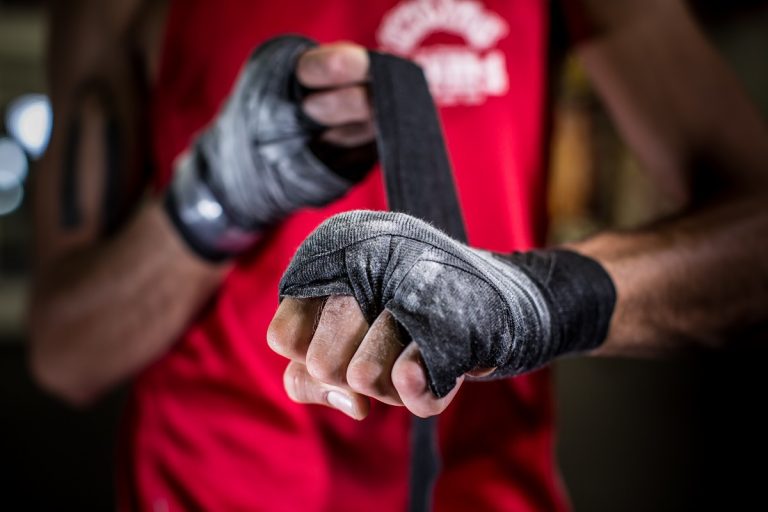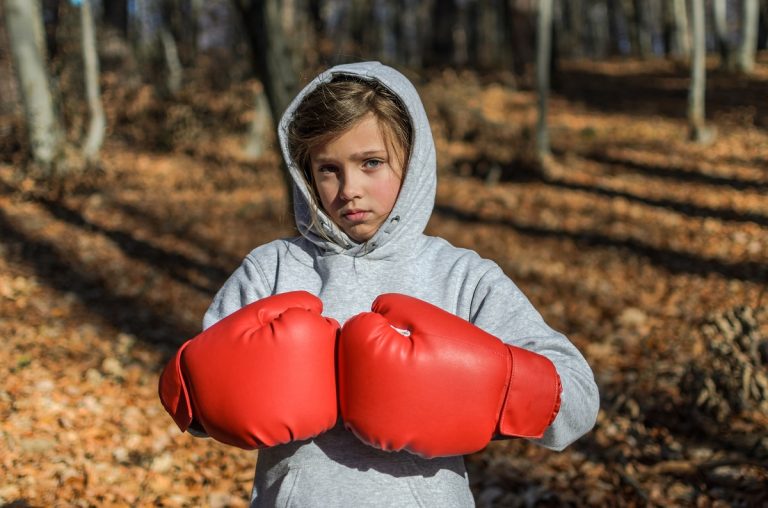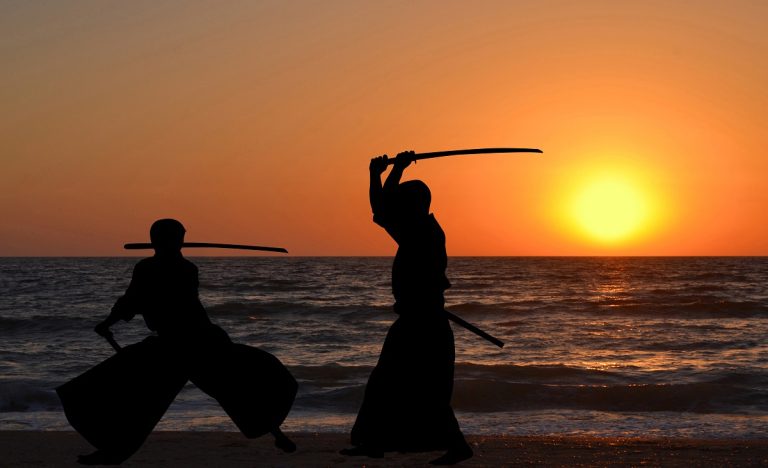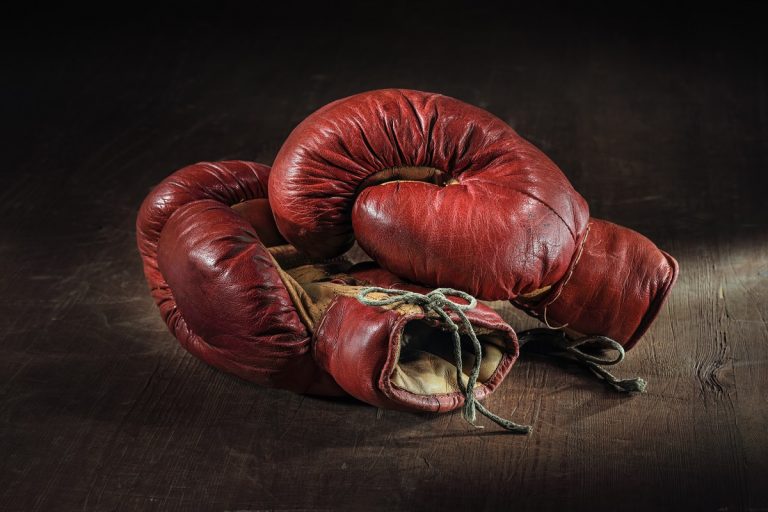Best Martial Arts For Women (Self-Defense, Strength, Spirituality)
When it comes to the best martial arts for women, it depends on the goals you want to achieve. Commonly, women want to try martial arts to train themselves up in self-defense techniques. Others choose martial arts to increase their strength and fitness, while others follow this path for the meditative and spiritual benefits many martial arts offer.
Whether you’re looking for a way to defend yourself in potentially dangerous situations, improve your balance and fitness, find a sport which suits those of us with smaller stature or more advanced years, or reap the meditative benefits of martial arts, we have something for you.
These martial arts will benefit beginners and those already experienced in alternative martial arts. Join us as we delve into the best martial arts for a whole range of women who want to focus on self-defense, increase strength, find a sport suited to shorter and more lightweight people, find a sport with benefits for middle-aged women, or begin a spiritual journey through sport.
We’ll list the pros and cons of these martial arts, helping you decide which is the best option for your personal goals.
Best Martial Arts For Women: Self-Defense
When it comes to the best martial art for women for self-defense purposes, the main attributes to look for are effectiveness, speed and ease of learning, and availability to learn the sport.
Which martial art you choose within this category may depend on the proximity of a club or dojo near you, or how comfortable you are with wrestling-style contact.
Brazilian Jiu-Jitsu (BJJ)
Jiu-Jitsu is one of the most popular martial arts around currently, having risen to fame incredibly steeply over just a few decades. Brazilian Jiu-Jitsu combine Jiu-Jitsu and Judo; it was master-minded at the beginning of the 20th century when a Brazilian fighter called Carlos Gracie met a Japanese judo champion Mitsuyo Maeda.
Brazilian Jiu-Jitsu is particularly suited to smaller or and lighter people because it focuses on defending against a potentially bigger and heavier attacker. Martial artists hail BJJ as the ultimate grappling, ground fighting combat sport, concentrating on technique and skill over physical strength.
Many BJJ moves are akin with wrestling – this is why it is called a ground fighting sport. As the sport lacks stand-up moves and strikes, there is a great focus on take-downs, leverage, and strong grip. Other key skills that are gained include joints locks, escapes and sweeps, all of which can help greatly against an attacker. When practiced as a sport, it has a relatively low injury rate.
Pros
- Excellent for real life self-defense that requires combat
- Suits smaller and lighter people
- Focuses on technique and skill
- Builds confidence and fitness
- Low injury rate
Cons
- Close contact is required for wrestling and grappling which some people may not be comfortable with (especially since many BJJ trainers are men)
- Lacks stand-up fighting moves and strikes
Muay Thai (Thai Boxing, Kickboxing)
At first Muay Thai (also known as Thai boxing and Kickboxing) can look a little intimidating, or outright brutal when you see matches on TV. However, Muay Thai gyms are some of the most modernised and welcoming martial arts gyms to train in, and are welcoming more and more women to the sport.
In a dangerous street situation, learning how to meet and deal out strong, brutal attacks is a great advantage. The extreme and rough reputation of this sport puts many off, but this is exactly what makes it so effective as a form of self-defense. When done right it can be a formidable weapon against larger and heavier opponents while minimising injury to yourself.
Muay Thai combines a whole range of moves, effectively using the elbows, knees, head, punches, kicks, and so much more. Essentially it focuses on a) distanced fighting by employing kicks and punches, and b) close range fighting using elbows, knees and head. This sport will help you inflict damage using powerful moves, as well as receive impacts more effectively.
Due to the high physicality of the sport, it is usually recommended for younger and fitter people, but it can be accessible to anyone and help you to gain fitness and lose weight.
Pros
- Excellent for real life self-defense that requires combat
- Highly effective, powerful technique
- Large range of moves for close and distanced fighting
- Builds confidence and fitness
Cons
- Highly physical and challenging on the body
- May better suit those who are younger and already fit
- Close contact is required for clinches which some may not be comfortable with
Best Martial Arts For Women: Strength
Both Brazilian Jiu-Jitsu and Muay Thai are also incredibly good martial arts for building physical strength and fitness. But here we’ll, take a look at a couple of others which are magnificent strength builders.
Judo
One of the oldest and most widely practised martial arts, Judo has an extensive following and is accessible to many around the world. It focuses primarily on grappling and throws and close range which also happens to make it ideal for self-defense.
In Judo, you learn to destabilize and stop opponents using momentum and leverage. Even when pinned to the floor, Judo practitioners have an arsenal of moves to re-gain the upper hand and swipe the advantage. Throws, submissions, joint locks, pins, and how to achieve a strong grip are all elements you will learn when practising Judo.
Judo will help you build real core strength rather than bulging muscles. It will quickly increase your fitness when practised regularly and correctly.
Pros
- Excellent for core strength
- Quickly increases fitness
- Wide range of take-downs which suit close range combat situations
- Widely accessible around the world
Cons
- Will not build bulging muscles
- Lacks strikes
Karate
Perhaps the most famous of all, Karate is often the first sport that comes to mind when thinking about martial arts. There are a great range of karate forms with emphasis on different sets of moves which are widely practised all over the world.
The “classic” martial arts moves are combined here; you will learn punches, kicks, blocks and quick footwork. It is mainly focused on distanced combat with ranged strikes and defensive manoeuvres. This makes it perfect for those who would prefer not to have the close physical contact in training that some other sports on this list involve. The speed and strength of karate may also be a great benefit in self-defense situations.
Karate has a strong focus on discipline, and this is one reason why it is a great sport for strength-building; strict discipline can increase your dedication to the sport, making it more likely you will continue and keep it up regularly, building strength and fitness quickly. For this reason, many argue it is a highly spiritual sport.
Of the many karate forms (such as Shotokan, Goju-Ryu, Kyokushin), Shotokan may be the best form for women. The focus on continuous movement, quick-fire attacks, accurate striking mean that technique and core strength rather than brute physical power are required.
Pros
- Excellent for all-round fitness and strength
- Whole range of strikes
- Different forms to choose from
- Less physical contact with opponents and trainers while practising
- Widely accessible all over the world
Cons
- Strict discipline involved (could be a pro for some)
- Not quite like it appears on TV!
Best Martial Arts For Women: Spiritual
Martial artists from all areas of combat sport may argue that every martial art has some kind of spiritual aspect, and if not spiritual then meditative or cultural aspect. This can depend on the way you train, how deep you delve, and the type of gym, dojo or club you practise at.
Pretty much everyone has heard of Tai Chi and Qi Gong, and while these are amazing martial arts to pursue, it may be more interesting to take a closer look at two lesser known martial arts which have a strong spiritual angle…
Aikido
Sometimes Aikido gets a bad rap for being “too gentle” to be effective – however, when practised properly, Aikido can be an incredibly powerful and strong force against an opponent.
Underlying Aikido is a “do-no-harm” principle. It is based on harmonizing your opponent, using their own weight or force to neutralize the combat rather than whole sale defeating the other person. Quick throws and joint locks are the main moves which are focused on here. This sport is not highly recommended for self-defense.
Training Aikido has a reputation for being relatively gentle on the body and joints. This makes it one of the most highly recommended for middle-aged and older women. It can effectively be as physical as you want it to be, depending on how intensively you train and your personal goals.
This martial art has a deep spiritual aspect, focusing largely on introspection, peace, and self-improvement. It can also help improve both mental and physical confidence. The principle behind Aikido is humanistic philosophy, a linking of the physical and mental to improve the spiritual potential of the individual.
Pros
- Peaceful “do-no-harm” philosophy
- Highly effective set of take-downs
- Good for both physical and mental health
- Spiritual, self-improvement aspect
- Recommended for middle-aged and older women (but accessible and excellent for all ages!)
Cons
- Not as effective for self-defense or strength building
- Sometimes gets an (unwarranted!) reputation for being too gentle
Tai-Ki-Ken
See a demonstration here.
One of the most interesting martial arts when it comes to development of your spirituality is Tai-Ki-Ken (also called Taikiken). This system of fighting focuses on balance, force and effective movement.
Tai-Ki-Ken incorporates breathing techniques, meditation, and musical tones such as the use of a gong. Practitioners think of it as fighting with internal strength, at full power, connecting mind and body in a show of great force.
This martial art helps you to gain fighting skills, speed and strength through free-flowing movement. Stillness is used to increase the body’s mobility and efficiency of movement.
While Tai-Ki-Ken is still widely practised in Japan, it has spread to other parts of the world. However, it can be hard to find a club or trainer in all regions. Luckily, there are masterclasses online, so this sport can be easily learnt at home. It would be a real boost to the sport if more people, particularly women, took up this noble artform.
Pros
- Excellent combination of physical and mental activity
- Strong spiritual element
- Focuses on self-improvement
- Accessible to all ages and body types
- Masterclasses online help you learn at home
Cons
- Not widely available to train in person
- Combat element is not as strongly formed as other martial arts on this list
Best All-Round Martial Art For Women
MMA (Mixed Martial Arts)
Potentially the most popular martial art today, MMA (Mixed Martial Arts) is a fantastic choice for those who want to try a whole range of techniques to become a great all-round fighter. If you are looking for a combat sport which you can mould in order to achieve your personal goals, this could be for you.
MMA is a whole process which aims to fill the gaps within an individual’s fighting knowledge while increasing strength, fitness and discipline. There is focus on all the main areas of martial arts: striking, wrestling, grappling, defense, ranged techniques.
There is some flexibility in MMA, in other words you will not become excellent at one type of martial art. The practise of this sport can be adapted to the individual’s strengths and weaknesses. This makes it accessible for a wide range of ages, body types, and preferences.
However, this may mean that, in a real life situation you may be very well-equipped to defend yourself, or you may find yourself vulnerable depending on the way in which your opponent attacks you.
MMA is continually rising in popularity and becoming more widespread, so it should be easy to find somewhere to practise this sport near you.
Pros
- Extensive range of martial arts to train in
- Can be adapted to individual needs and goals
- Produces well-rounded fighters
- Great for fitness and strength
- Widely accessible around the world
Cons
- You will not specialise in any one martial art
- May not be applicable to real life situations (depending on which martial arts you train in)
Also Read:
- Best Martial Arts for Small Person (Kids, Short Adults, Small Women & Girl, Skinny Guys): For Self Defense
- Best Sword Martial Arts: 5 From Around The World (Kendo, Taijijian, Haidong Gumdo, HEMA, Gatka)
- Is Boxing A Martial Art? (Arguments For And Against)
- 3 Most Effective Martial Arts For Multiple Attackers (MMA, Boxing And Krav Maga)







